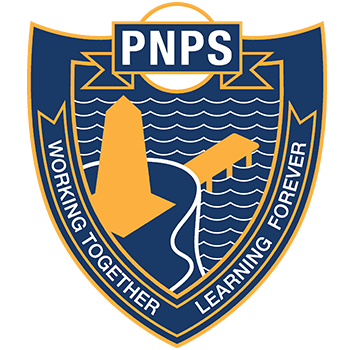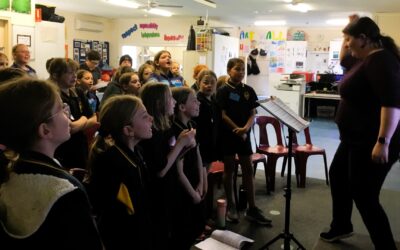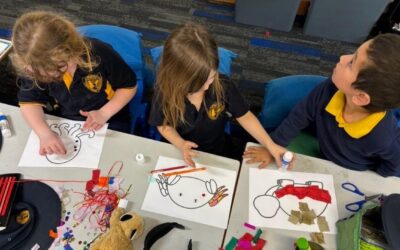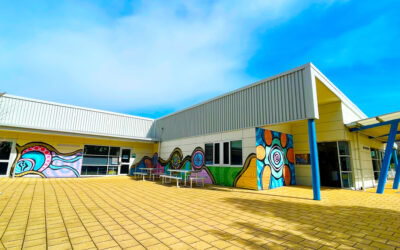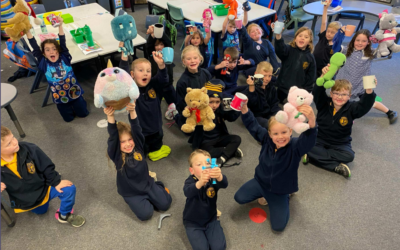A classroom story by Kris Sander – Year 4/5 teacher

Buddy programs are generally programs which involve older children being paired with younger children, for example children starting school and children in older years. However, similar year level students may also be matched as peer-tutor buddies.
The buddy program promotes social and support networks for children, creates a caring school environment with shared values and builds a sense of community and belonging in the school.
Across our school, classes are matched up as buddies and participate in structured activities.
Being in a buddy class has many learning and social advantages:
- Younger students can practice reading and sight words with older students
- Older students learn a sense of responsibility
- Older students look out for younger students (for example Reception students), help them to adjust to school life and are someone to play with until they form their own friendships
- Older students learn to be more empathetic and compassionate and younger students feel safer
- Students may improve in self-confidence
- Children feel a greater connectedness to the school
- The likelihood of bullying may be reduced
This is what some students said about buddy class:
“I like how we get to teach younger kids.” – M
“It’s a great opportunity to help younger kids learn new things.” – E
“You get to learn together because sometimes you help them and sometimes they help you.” – C
“I like to help my little buddy because I like to help people around school who are new.” – L
“I like to listen to my buddy read because I can help.” – U













As can be seen from the photos, students are happy to support and take an interest in each other’s learning.
Our buddy classes have collaborated to clean up at the beach through our Adopt-a-Spot program, practised songs and dances for our Christmas Concert and Twilight Dance and planned and presented at Assembly together.
Go Buddy!
